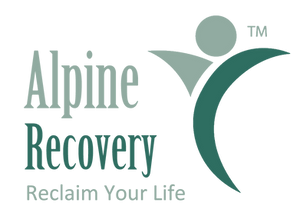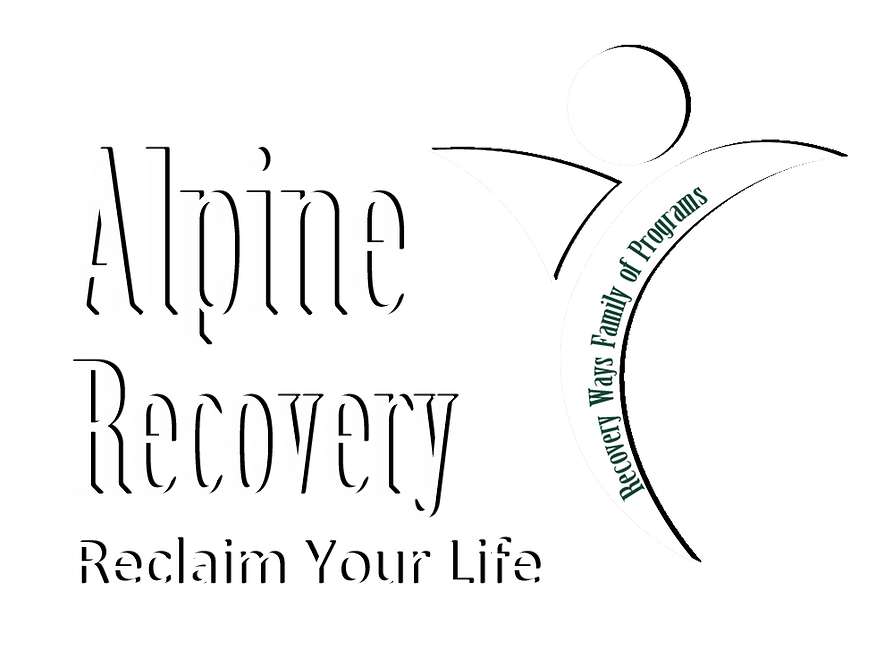Drug Rehabs in Marysville WA
Struggling with addiction can feel overwhelming, but seeking help is a powerful first step toward recovery. If you or a loved one is considering rehabilitation, you’re not alone. Many individuals in Marysville, WA, have taken this courageous step and found freedom from substance abuse with the right support. This guide is here to provide a thorough overview of drug rehabs in Marysville WA. You’ll learn about addiction treatment, discover the types of rehabs available, get advice on choosing the right program, and find actionable resources to help you start the recovery process.
What Is Addiction?
Addiction is a chronic condition characterized by the inability to stop using a substance despite harmful consequences. It affects not only the individual but also their family, friends, and community. Common addictions treated at drug rehabs in Marysville WA include opioids, methamphetamine, alcohol, and marijuana. Luckily, with the right rehabilitation program, recovery is possible. Rehab centers offer structured treatment that includes medical care, therapy, and support networks to help individuals regain control of their lives.
Why Drug Rehabs in Marysville WA are Essential for Recovery
Overcoming addiction is not simply a matter of willpower; it is a complex process that often requires medical intervention, psychological support, and a structured environment. Drug Rehabs in Marysville WA play a crucial role in this journey by offering professional care, personalized treatment plans, and access to therapy sessions that address both the physical and emotional aspects of addiction. These centers provide:
- Supportive counseling: Providing a safe and non-judgmental space to explore and address the underlying causes and triggers of addiction, helping individuals develop healthier coping mechanisms and emotional resilience.
- Ongoing care: Preventing relapse through structured aftercare programs, regular check-ins, and continued therapy sessions tailored to support long-term recovery and maintain healthy coping strategies.
Rehabilitation isn’t just about stopping substance use; it’s about addressing the underlying challenges, building healthier habits, and creating a strong foundation for a fulfilling, balanced, and meaningful life. It’s a journey of healing, growth, and rediscovery, empowering individuals to reach their full potential.
Types of Drug Rehabs in Marysville WA: Exploring Your Options
Marysville offers a comprehensive range of drug rehab options tailored to meet the unique needs and circumstances of each individual. These programs are thoughtfully designed to address various levels of addiction, whether someone is just beginning their recovery journey or needs ongoing support after treatment. With a focus on personalized care, Marysville ensures that every patient receives the tools and guidance necessary to achieve lasting recovery. Options include intensive outpatient programs for intensive support, outpatient services for flexibility, and specialized therapies to address underlying issues contributing to addiction. The goal is to provide a supportive, understanding environment where individuals can rebuild their lives and thrive.
1. Inpatient Rehabilitation
- Best for: Individuals who need intensive, round-the-clock care due to severe medical conditions or significant support needs, ensuring they receive continuous assistance and supervision.
- What to expect: Patients stay at the facility full-time, living on-site and participating in a variety of structured treatment programs tailored to their needs. These programs often include therapy sessions, group activities, skill-building workshops, and constant medical supervision to ensure safety and progress throughout their recovery journey.
2. Outpatient Rehabilitation
- Best for: Individuals with milder addictions who may still have significant responsibilities, such as work, school, or family commitments. This approach allows them to seek professional help and support while continuing to manage their daily routines, maintaining a balance between recovery and personal or professional obligations. It provides flexibility for those who cannot afford to step away completely from their day-to-day lives.
\- What to expect: Patients receive personalized therapy and medical care tailored to their needs, all while remaining in the comfort and familiarity of their own home. This approach allows for flexibility and support in a setting that promotes healing and well-being.
3. Specialized Programs
- Teen rehabilitation programs that provide peer-based support to help young individuals connect with others facing similar challenges, fostering a sense of understanding and community during their recovery journey.
- Programs for veterans that focus on addressing trauma, addiction, and providing specialized support to help them regain stability and improve their overall well-being.
- Women-only programs tailored to address gender-specific needs, providing support and resources designed to empower women in achieving their personal and professional goals.
No matter your circumstances, there’s a treatment option designed to meet your unique needs and help you take the next step toward better health and well-being.
How to Choose the Right Rehab Center
Selecting the right rehab center is a critical step in the recovery journey, as it can significantly impact the success of your treatment. It’s important to carefully evaluate various factors to ensure the facility is the right fit for you. Consider the types of treatments offered—does the center provide evidence-based therapies or specialized programs tailored to your condition? Assess the qualifications and experience of the staff to ensure you’ll be in capable hands. The facility’s environment also matters—look for a setting that feels safe, supportive, and conducive to healing. Additionally, think about whether the center aligns with your specific needs and goals, such as offering aftercare programs, or family support services. Taking the time to weigh these factors can make all the difference in your recovery journey.
Key Factors
- Location: Do you prefer staying close to home in Marysville, where you can remain near loved ones and familiar surroundings, or would you rather find privacy and a fresh start in a remote rehab center, away from daily distractions?
- Cost and Insurance: Before committing to a program, verify if it accepts your insurance plan to help reduce out-of-pocket costs. Additionally, inquire if the program provides financial aid, payment plans, or sliding scale options to make it more affordable.
- Program Type: Select the option that works best for your situation—whether you need the intensive support of inpatient care, the flexibility of outpatient programs, or a specialized approach tailored to specific needs or conditions.
- Staff Credentials: Ensure the facility has fully licensed and experienced counselors, therapists, and medical staff who are qualified to provide professional care. Look for certifications and specialized training in areas relevant to your needs, such as addiction treatment or mental health support.
Questions to Ask
- Do they offer evidence-based treatments backed by research and proven to be effective for addressing your specific needs?
- What does a typical day in the program look like? Can you walk me through the daily schedule, including the activities, sessions, and any breaks or opportunities for interaction?
- Is family involvement encouraged in the program, and are there opportunities for families to actively participate in the process?
- What is the staff-to-patient ratio, and how does it ensure patients receive adequate attention and care?
Financial Considerations
Many rehab centers accept insurance or provide financial assistance programs to make treatment more accessible. To start, call your insurance provider to confirm what services are covered under your plan, including inpatient and outpatient care. Additionally, reach out to the rehab centers directly to discuss payment options, as many offer sliding scale fees, payment plans, or scholarships to help reduce costs. Taking these steps can help ensure you find a treatment option that fits your financial situation.

Preparing for Rehab What to Expect
Starting rehab can feel daunting, but knowing what lies ahead can reduce anxiety.
- Intake Process: The process begins with a thorough assessment to understand each individual’s unique needs, preferences, and goals. This allows for the creation of a personalized treatment plan designed to address specific challenges and provide the most effective support for long-term success.
2. Customizable Intensity: Outpatient care offers flexibility to fit your needs, ranging from standard weekly therapy sessions to intensive outpatient programs (IOPs). IOPs provide a higher level of support, requiring several hours of treatment each week, often including group therapy, individual counseling, and skill-building sessions to help patients achieve their goals.
3. Therapy and Counseling: Rehabilitation centers use a combination of individual and group therapy sessions to help individuals address the root causes of addiction and work toward sustainable recovery. In individual therapy, patients receive personalized attention to explore their unique experiences, triggers, and challenges, while group therapy provides a supportive environment where they can connect with others facing similar struggles. Together, these approaches help individuals develop effective coping mechanisms, build healthier habits, and establish a solid foundation for long-term recovery.
Maintaining Sobriety After Rehab
Rehabilitation is an important first step on the path to recovery, but it’s only the beginning of a lifelong journey. Achieving and maintaining sobriety requires ongoing effort, commitment, and a support system to stay on track. It’s a process that involves learning how to navigate challenges, build healthy habits, and develop coping strategies for life’s ups and downs. These tips can provide valuable guidance and encouragement as you adjust to life after rehab and continue working toward lasting recovery:
Building Support Networks
- Join local support groups like Alcoholics Anonymous (AA) or Narcotics Anonymous (NA), where you can connect with others who are on similar recovery journeys, share experiences, and gain encouragement in a supportive and understanding environment.
- Stay connected with loved ones who support and encourage your sober lifestyle, offering positivity and motivation as you continue your journey toward a healthier and happier you.
Making Lifestyle Changes
- Avoid triggers that could lead to relapse, such as stressful situations, environments associated with past habits, or negative influences. Identifying and steering clear of these triggers is key to maintaining progress.
- Develop healthy habits, such as engaging in regular exercise to boost physical and mental well-being and maintaining a balanced diet rich in nutrients to support overall health and energy levels.
Continued Therapy and Counseling
Ongoing therapy provides a supportive and confidential space to address personal challenges, navigate complex emotions, and build stronger coping strategies for managing life’s stresses. It offers an opportunity to explore and understand patterns in thoughts and behaviors, helping individuals gain greater self-awareness and clarity. By working collaboratively with a therapist, people can develop healthier ways to handle difficulties, build resilience, and foster personal growth. Over time, therapy can improve overall mental well-being, enhance relationships, and create a more balanced and fulfilling life.
Conclusion
Choosing to seek help is an act of courage and a powerful step toward a better future. Whether you’re struggling with addiction yourself or supporting a loved one through their journey, finding the right rehab center is a critical decision that can truly change lives. In Marysville, you’ll find compassionate, professional rehab options designed to meet a variety of needs, offering personalized care to ensure the best path to recovery. These centers provide support not just through treatment but also by addressing the root causes of addiction, helping individuals build the skills they need for long-term success. Recovery isn’t just about stopping addiction—it’s about reclaiming your life, restoring relationships, and finding fulfillment again. Take that first step today and reach out to us by calling 1 (360) 658-1388 or clicking Alpine Recovery. Your healing journey starts here, and it’s never too late to begin.



